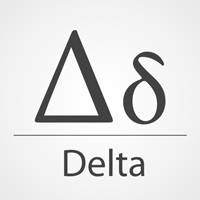

Delta neutral trading is a strategy used in options trading to hedge against price movements in the underlying asset. The goal of delta-neutral trading is to have positions that are insensitive to small price changes in the underlying asset. This reduces the risks and allows traders to focus on other aspects of their trading strategy.
Delta, as a Greek in options, is a measure of an option’s sensitivity to changes in the price of the underlying asset. It is expressed as a number between 0 and 1. It represents the expected change in the option’s price for a 1-point change in the price of the underlying asset. A delta of 0.5, for example, means that for every Rs. 1 increase in the price of the underlying asset, the
option price is expected to increase by Rs. 0.50.
In delta-neutral trading, the trader seeks to balance their options positions so that their overall delta is close to zero. This means that their portfolio should not be significantly impacted by small price changes in the underlying asset.
One way to achieve a delta-neutral position is using options. For example, a trader may sell a call option with a delta of -0.5 and sell a put option with a delta of +0.5. The net delta of this combination of options is 0, meaning that the portfolio is delta neutral. This is also infamously called a Short Strangle.
Another way to achieve a delta-neutral position is with underlying assets. For example, a trader may hold a long position in the underlying asset and simultaneously sell an equivalent number of futures contracts on the same underlying asset. The net delta of this combination of positions is zero, meaning that the portfolio is Delta-neutral.
Delta-neutral trading can be beneficial for traders in several ways. First, it allows traders to reduce their exposure to market risk and focus on other aspects of their trading strategy, such as volatility and time decay. This can help traders make more informed decisions and potentially increase their profits.
Second, delta-neutral trading can also help traders to reduce the cost of carrying positions. For example, if a trader is holding a long position in the underlying asset, they may need to pay a premium to carry the position, such as interest on margin or storage costs for physical commodities. By offsetting this long position with a delta-neutral trade, the trader can reduce or eliminate these costs.
Finally, it can also be useful for traders who are looking to generate income from their options positions. By selling options with high delta, traders can collect premiums and earn income, while the delta-neutral trade helps to hedge against market risk.
There are some important considerations to keep in mind when using delta-neutral trading. First, it is important to understand the underlying mechanics of options and delta, as well as how these factors can impact your trading strategy. Traders should also be aware of the potential for changes in the delta of their options positions, as market conditions can cause the delta to shift over time.
Second, it is important to consider the cost of implementing delta-neutral trades. For example, selling options with a high delta can generate premium income, but it can also increase the risk of losses if the underlying asset moves against the trader.
Finally, it is important to be aware of the potential for slippage in Delta-Neutral trades. Slippage occurs when the price at which you enter or exit a trade is different from the expected price, and it can have a significant impact on the profitability of Delta-Neutral trades.
In conclusion, delta-neutral trading is a useful strategy for options traders who are looking to hedge against market risk and focus on other aspects of their trading strategy. However, it is important to understand the underlying mechanics of options and delta, as well as the potential costs and risks associated with delta-neutral trades.
For a better understanding of options and other trading concepts visit us on Sharekhan Education and go through our Extensive Courses and pick out the one that best caters to your needs!
By enrolling in this course, you can learn the basics and various aspects of Futures and Options Trading.